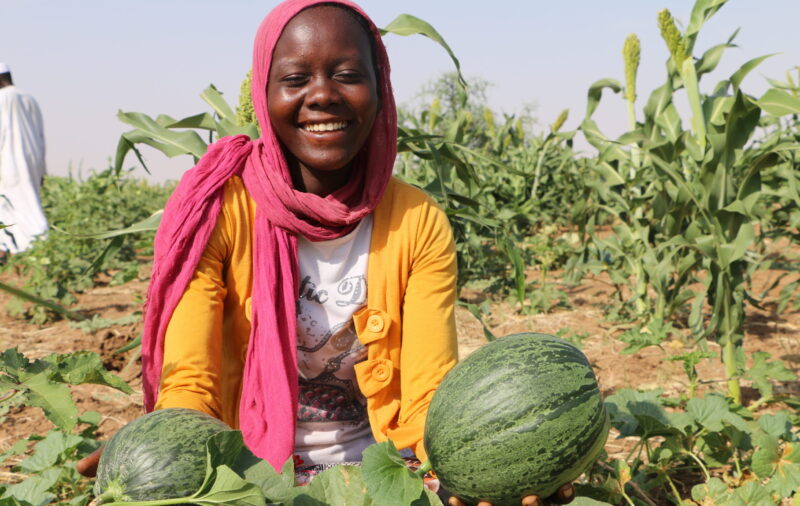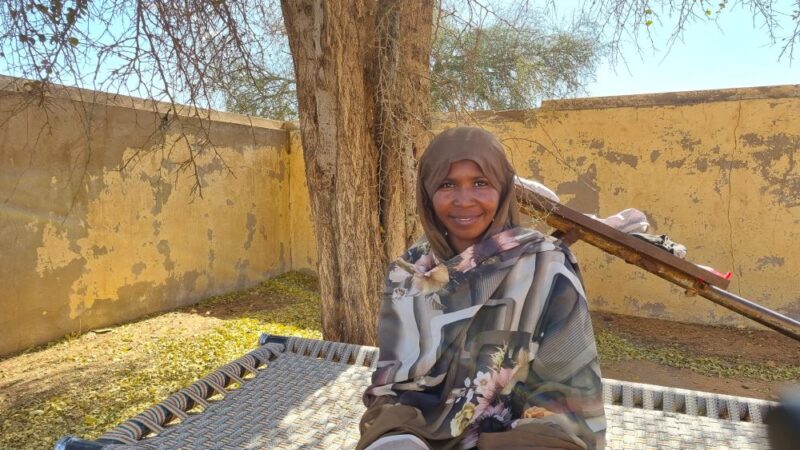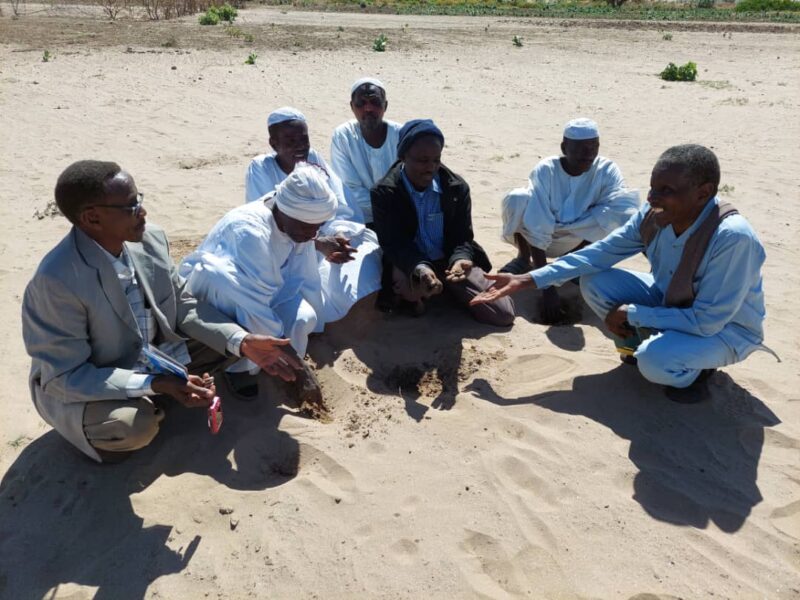Beating drought and nourishing lands in North Darfur
North Darfur is one of the most drought-prone areas of Sudan, made worse by climate change. Rainfall has drastically declined, and its patterns have become increasingly unpredictable. As a result, severe droughts in recent years, alongside increased temperatures and heat waves, are contributing to shrinking vital resources for the livelihoods of farmers and pastoralists.
As projections suggest, the risks of climate change will continue to be exacerbated. In a fragile context due to political and economic conflicts, the difficulty of accessing water and fertile land for both farmers and pastoralists contributes to fanning the flames of inter-village conflict. And for prosperous futures to flourish, collaboration, peace and understanding are needed.
Working in North Darfur for over 30 years, Practical Action promotes a comprehensive approach to this complex issue, making it possible for communities to adapt to these increasingly challenging climate impacts: Integrated Water Resources Management (IWRM). While the name suggests this approach is about water, it goes much further. It recognises traditional community expertise in managing land and water sustainably. Climate change has disrupted these practices, reducing productivity in grazing and croplands.
To address this, we support communities in land and water use, improving water points, livestock corridors, and rainwater harvesting. It also includes forest and watershed management, involving tree planting and reintroducing nutritious indigenous grasses. Local communities, including pastoralists and farmers, play a central role by forming natural resource management committees. These committees, comprising various groups, ensure fair resource access, enhance food security, and reduce conflicts.


Currently, the largest project utilising this approach is implemented in Darfur, Sudan’s Wadi El Ku catchment area. This project builds on our previous experience working in this catchment area since 2013, and its second phase (WEK 2) has managed to continue the work throughout very challenging times.
Collaboration ripple effects
Committees were established in the villages to effectively manage natural resources such as land and water so everyone’s needs would be considered when making decisions. Promoting trust and collaboration has enabled the communities to identify challenges and devise solutions. Committees are established at the beginning of the project with a wide array of functions as well as diversity in their composition. Ranging from water committees composed of community members ensuring all are represented to technical committees, where government, universities and community-based organisations can monitor and advise, all work done is a step forward in fostering a better future together.
We recently trained the water committees in Edelbaida and Wada villages on how to maintain and sustain the shared Kusa/Sarafaya dam. According to a recent visit from a technical committee that met with the communities, the dam successfully conveyed water over the farming land, covered around 9000 hectares, observably raised soil moisture, and enabled farmers to cultivate in winter and increase crop production.
A dam working properly is a life-changing milestone, as Suhida Ibrahim Ali, Edelbaida women’s committee member, told us that not having a dam for many years has profoundly changed the village, in which two-thirds are women. Young people, mostly men, left it because when water is scarce, so are the opportunities to work.
Suhida remembers having a dam quite fondly, as many came from other villages, and young people stayed, worked and found ways to collaborate as one big community by organising into committees. Farmers benefit from being able to irrigate their crops, and pastoralists from water for their herds and food from the farming waste. This way of working deescalates conflict as everyone can voice their concerns and needs.

Working together towards better harvest
Farmer cooperative groups in Sudan are vital in facilitating knowledge sharing and capacity building among small-scale farmers. These groups provide a platform for farmers to exchange information about best practices, new technologies, and market trends. By learning from one another and accessing training programs facilitated by cooperatives, farmers can improve their skills and adopt more efficient and sustainable farming methods. This knowledge-sharing aspect enhances agricultural productivity and resilience, ultimately leading to increased yields and income for farmers in Sudan.
Another project success was the formation of five of these Farmer Cooperative Groups, which have a minimum of 25 members each and are registered with the Ministry of Agriculture. One of these groups had 2.5 yards of land and specialised in producing certified sorghum seeds to provide high-quality seeds to local farmers at an affordable price, allowing them to reduce their extra expenses and increase their production. The Farmer Cooperative Groups were trained in preparing and choosing land, spacing, seed varieties, seed production, weeding, pests, and diseases, as well as producing sorghum leaf as a byproduct to feed livestock, allowing farmers to maximise their profit. The demonstration farm, used to train farmers in innovative agriculture practices, had great productivity. Fathi Eltahir, a technical committee member, said, “Because of advanced agricultural techniques, the demonstration farm is greener and more productive than the neighbouring farm. Farmers will be encouraged to use the new techniques as a result of this.”


The current conflict is having a devastating effect on Darfur, leaving the area isolated and vulnerable.
Now more than ever, we must not turn our attention away from what is happening in Sudan and seek in every way possible to support people seeking a secure, resilient and prosperous future.